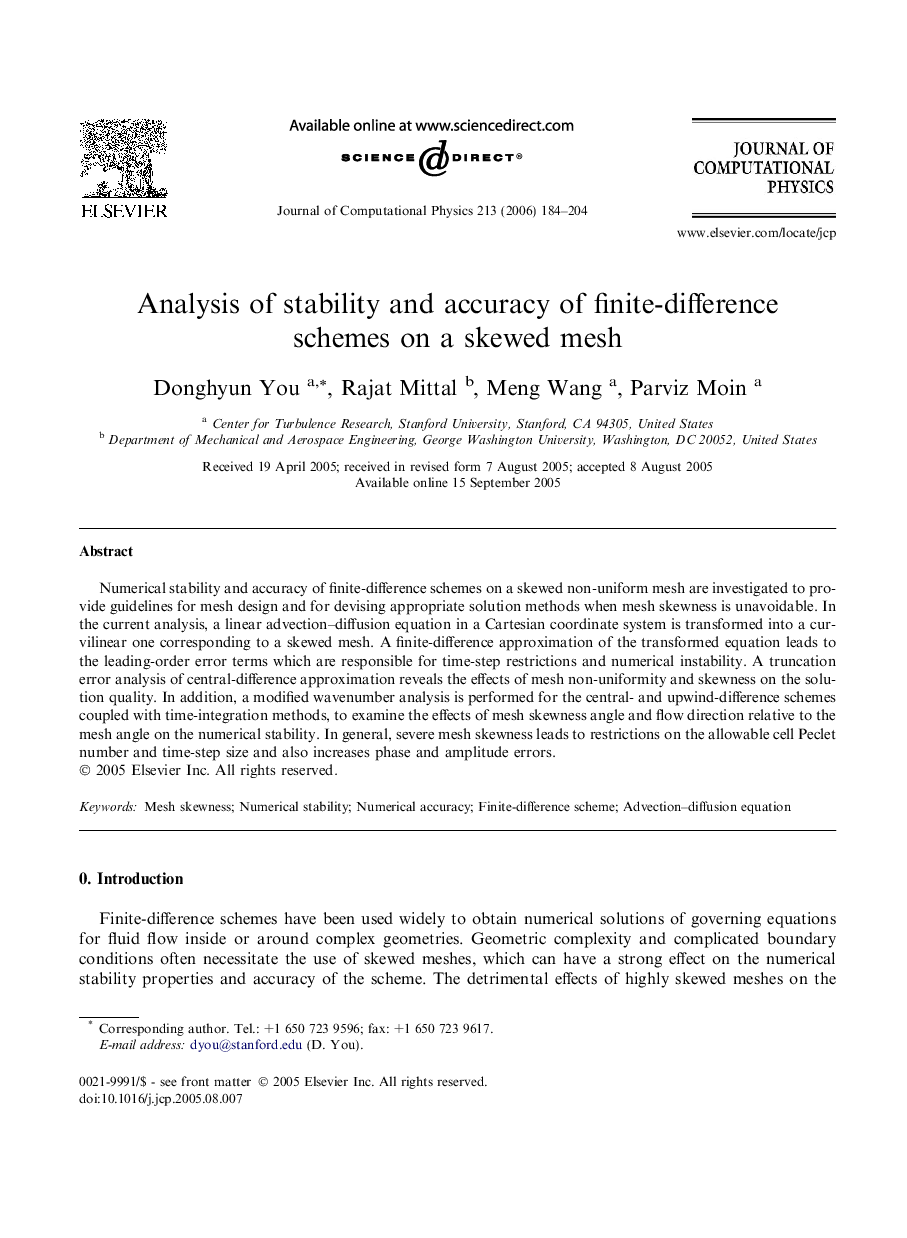| Article ID | Journal | Published Year | Pages | File Type |
|---|---|---|---|---|
| 521256 | Journal of Computational Physics | 2006 | 21 Pages |
Numerical stability and accuracy of finite-difference schemes on a skewed non-uniform mesh are investigated to provide guidelines for mesh design and for devising appropriate solution methods when mesh skewness is unavoidable. In the current analysis, a linear advection–diffusion equation in a Cartesian coordinate system is transformed into a curvilinear one corresponding to a skewed mesh. A finite-difference approximation of the transformed equation leads to the leading-order error terms which are responsible for time-step restrictions and numerical instability. A truncation error analysis of central-difference approximation reveals the effects of mesh non-uniformity and skewness on the solution quality. In addition, a modified wavenumber analysis is performed for the central- and upwind-difference schemes coupled with time-integration methods, to examine the effects of mesh skewness angle and flow direction relative to the mesh angle on the numerical stability. In general, severe mesh skewness leads to restrictions on the allowable cell Peclet number and time-step size and also increases phase and amplitude errors.
